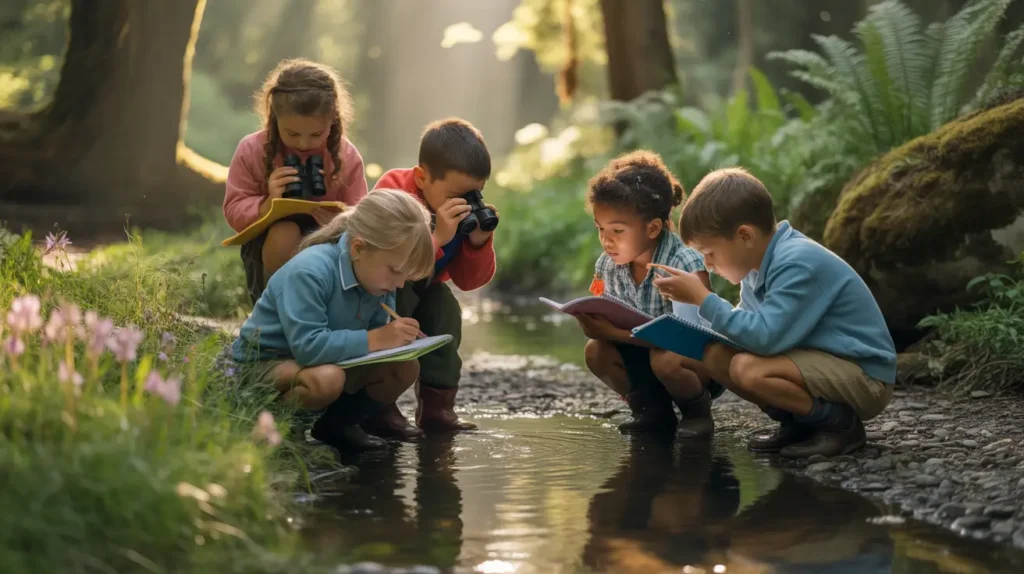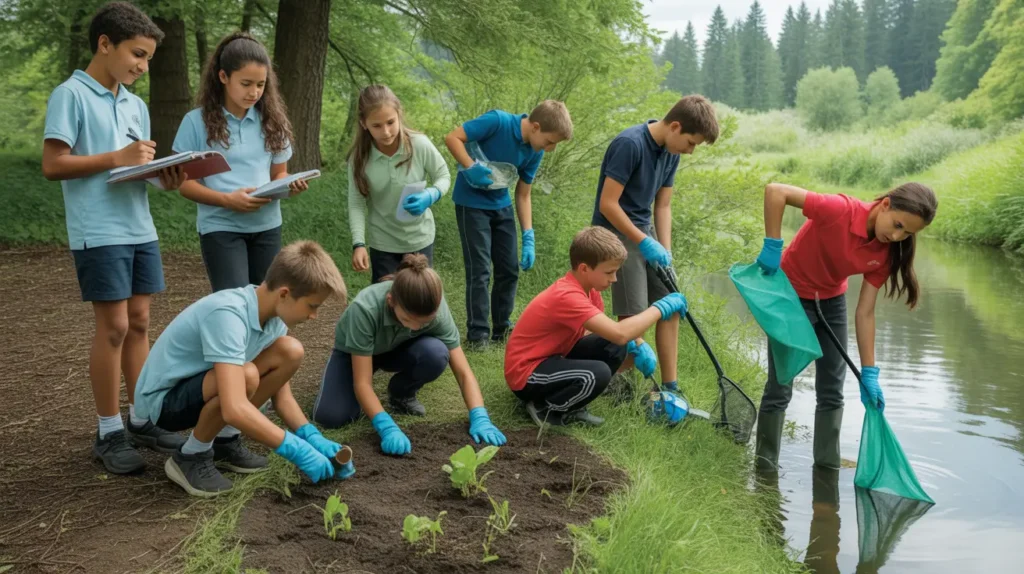Naturalistic intelligence, one of Howard Gardner’s multiple intelligences, is the ability to recognize, categorize, and interact effectively with the natural world. From plants and animals to landscapes and ecosystems, individuals with this skill have a unique understanding of their surroundings and a deep connection to nature.
In today’s fast-paced, technology-driven society, developing this ability is more important than ever. It not only enhances observational skills and ecological awareness but also supports personal growth, learning, and well-being.

Content
What is Naturalistic Intelligence?
Naturalistic intelligence is more than just enjoying the outdoors—it’s a cognitive ability that enables individuals to notice patterns in nature, identify species, and understand the interconnections between living and non-living elements. According to Howard Gardner’s multiple intelligences theory, this skill is just as important as linguistic or logical-mathematical intelligence, though often less emphasized in traditional education.
Individuals with strong naturalist abilities tend to:
- Observe their surroundings carefully and notice subtle changes.
- Categorize plants, animals, or objects efficiently.
- Show curiosity about ecological systems and environmental sustainability.
Example: A student who can identify bird species by their calls or track seasonal changes in plants demonstrates this ability in action.
Characteristics of Naturalistic Intelligence

Understanding the key characteristics of naturalistic intelligence can help educators, parents, and learners identify and nurture this ability. Some core traits include:
- Keen Observation Skills: Naturalist learners notice details others may overlook, from subtle changes in weather to animal behaviors.
- Affinity for Nature-Based Learning: These individuals thrive in outdoor classrooms, nature hikes, and hands-on ecological projects.
- Curiosity About the Environment: They ask questions about ecosystems, weather patterns, and animal interactions.
- Ecological Awareness: People with strong naturalist abilities often show concern for sustainability and environmental protection.
- Pattern Recognition: They can classify objects, species, or phenomena based on similarities and differences.
How to Develop These Skills
This type of intelligence is not fixed—it can be nurtured and strengthened through intentional practice. Here are some practical strategies:
- Engage in Nature-Based Activities: Gardening, hiking, or observing wildlife helps develop observational skills.
- Document Your Observations: Maintain a nature journal to track changes in plants, animals, and weather patterns.
- Participate in Ecological Projects: Community clean-ups, conservation efforts, or school garden projects offer hands-on learning experiences.
- Incorporate Nature in Learning: Encourage students to explore math or science through natural patterns, like leaf arrangements or animal habitats.
- Ask Questions and Explore Patterns: Promote curiosity about the environment and ecological systems.
Benefits for Personal Growth
Developing this type of intelligence brings several tangible benefits:
- Enhanced Problem-Solving: Recognizing patterns in nature improves analytical thinking.
- Emotional Well-Being: Spending time in nature reduces stress and enhances mindfulness.
- Improved Learning: Students can connect theoretical concepts with real-world natural examples.
- Environmental Responsibility: Individuals with strong ecological awareness are more likely to engage in sustainable behaviors.
Real-Life Case Study: Empowering Students Through Nature

In a recent project at a middle school in Oregon, educators noticed that students struggled with traditional classroom learning. To leverage their naturalistic intelligence, teachers introduced a hands-on environmental science program. Students were tasked with:
- Observing local wildlife and documenting their findings.
- Planting a school garden to understand plant growth cycles.
- Participating in river clean-up projects to study ecosystems firsthand.
Outcome: Students showed a remarkable increase in engagement, problem-solving skills, and ecological awareness. Even those who struggled academically demonstrated significant growth in observational and analytical abilities. This real-world example illustrates how nurturing this type of intelligence can transform both learning experiences and personal development.
Conclusion
Naturalistic intelligence is a vital, often underappreciated skill that connects us with the environment and enriches our learning experiences. Just as a Server Intelligence Agent analyzes data to optimize performance, naturalist learners observe and interpret patterns in nature to deepen understanding. By recognizing their characteristics and implementing nature-based activities, we can foster observational skills, ecological awareness, and personal growth. Whether through gardening, hiking, or participating in conservation projects, everyone has the potential to strengthen this ability. Embracing the natural world not only enhances cognitive skills but also cultivates a deeper respect for the environment and a more meaningful connection to life itself.
FAQ’s:
What jobs use naturalist intelligence?
Careers like biologist, ecologist, farmer, park ranger, and environmental educator rely heavily on naturalist intelligence.
What is meant by natural intelligence?
Natural intelligence is the ability to understand, observe, and interact effectively with the natural world.
What is the rarest type of intelligence?
Naturalistic intelligence is among the rarest types of Howard Gardner’s multiple intelligences

Travis Gibson is an avid blogger on technology, gadgets, and other topics that interest him. He likes to write about his personal experiences with the latest tech products as well as offer advice for people who are looking to buy a new device. When he is not blogging you can find him at home playing video games or watching anime.






